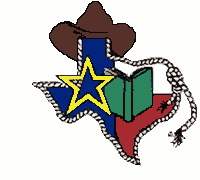
The following is the review I originally posted on one of my other blogs,
What is the Librarian Reading?Main Character: 17-year-old Alex Morales
Location: Manhattan, New York City
Time period: Contemporary or slightly in the future
Genre: YA Fiction, Dystopian fiction, Survival, Speculative Fiction
Companion to:
Life As We Knew ItThe Dead & the Gone is set in the same time and the same situation as
Life As We Knew It, but while
Life followed a family in a rural area,
Dead is set in the inner city.
Alex Morales is a smart high school junior with big dreams and plans for his future. On the night the moon is knocked out of orbit, he is working at the pizza place where the only sign that anything has happened is that the cable suddenly goes out. He gets home to find his sisters in a tizzy. Their mother has been called in to work at her hospital in Queens, their father had gone to Puerto Rico for his mother's funeral, and big brother Carlos is in the Marines and is being deployed. So Alex, Brianna, and Julie are alone for the duration.
At first, I thought that Miranda (from Life) was in a better situation than Alex. She had a mother and an older brother to take most of the burden; Alex suddenly becomes the family caretaker. Miranda's family managed to stockpile a lot of food at the beginning; Alex helps his uncle empty his bodega and receives some food in return, but it's not much.
But while Miranda's mother worked at isolating her family insisting that they take care only of themselves, Alex has a support network. His church relays information about food lines; his school remains open, guaranteeing a hot lunch on weekdays; and some of his classmates, all from wealthier families, offer information, advice, and other small acts of kindness.
That doesn't mean that Alex has it easy. In a truly horrific scene, Alex looks for his mother among the dead laid out at Yankee Stadium. He and his friend Kevin rob the bodies of the dead on the street for items to exchange for black-market food. When the volcanoes erupt and the air is filled with ash, Brianna develops asthma. Hoping against hope that their parents and Carlos are alive and will come back, Alex and the girls stay in their apartment, but Alex eventually realizes that Julie is not safe--especially after the black market dealer offers Alex and Bri a way out of town in exchange for Julie--and he needs to get them out of the city.
Miranda's story was told in first person diary entries, while Alex's story was told in the third person. This gives a bit a distance to the story; though Alex experiences more than his share of tragedy, this book is not as mournful as the first one. I did think the ending was a bit abrupt, and I would like to know what happens next. Are things really any better in the south? Does the new year bring a clearing of the air? Will mankind survive?
 Main Character: 12-year-old Willow
Main Character: 12-year-old Willow


